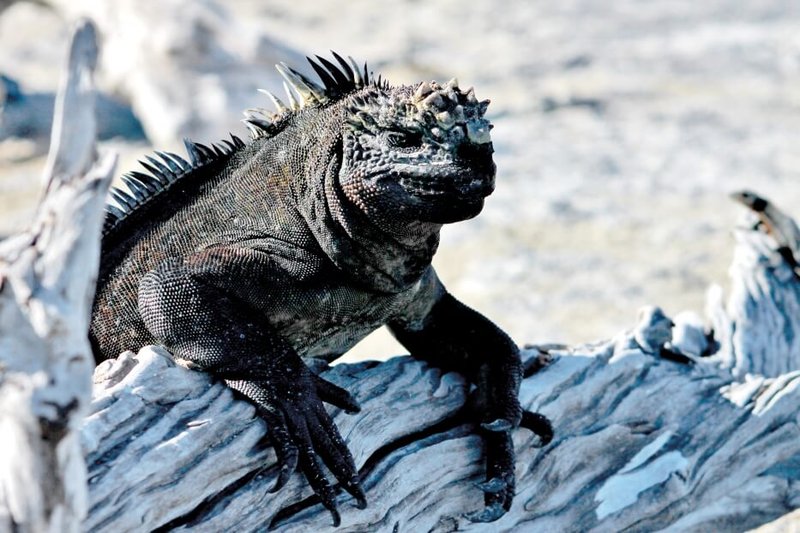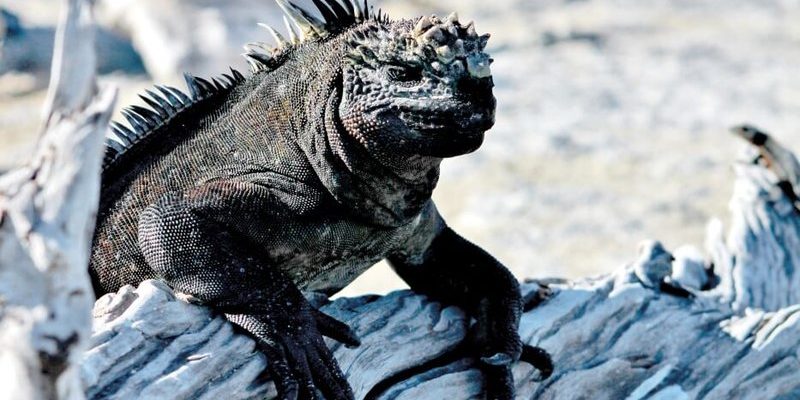
Imagine you’re on a beach surrounded by lush greenery and crystal-clear waters. Suddenly, you spot a group of iguanas basking in the sun, looking peaceful and relaxed. It’s tempting to think of them as just another part of your tropical getaway. But as you watch them swim in the ocean, you might start to wonder: could these reptiles actually pose a danger? Here’s the thing: while marine iguanas can be formidable in their own right, they generally aren’t a threat to people.
Understanding the Marine Iguana
Marine iguanas are the only lizards in the world that can swim and forage in the sea. They have adapted to their environment in remarkable ways, allowing them to dive and graze on seaweed. With their dark, scaly skin and flattened bodies, they look like miniature dragons gliding effortlessly through the water. But what makes them even more interesting is their behavior and how they interact with humans.
These iguanas can grow up to 5 feet long and weigh around 11 pounds, depending on the species. They’re robust, with strong limbs and long tails that help them navigate both land and sea. Despite their imposing appearance, marine iguanas are generally not aggressive. They’re more likely to avoid humans than confront them, and their diet consists mainly of algae. So, they’re not looking for a fight – just a meal.
Are Marine Iguanas Aggressive?
Now, let’s address the big question: are marine iguanas aggressive? The short answer is no. Marine iguanas tend to be quite docile creatures. When you encounter one, you’ll usually find them sunbathing on the rocks or swimming lazily in the ocean. They don’t seek out human interaction, and most will scurry away if you get too close.
However, like any wild animal, they can defend themselves if they feel threatened. If you accidentally corner one or invade their personal space, they might hiss or puff up their bodies, which can look intimidating. This behavior is more about self-preservation than aggression. In essence, they’re like a shy child who just wants to be left alone.
Potential Risks from Marine Iguanas
While marine iguanas are not typically a danger to humans, there are still some risks to consider. First off, their strong bites can hurt if they feel threatened, so it’s important to keep your distance. If you are trying to observe them up close, remember to approach slowly and respect their space.
Another risk comes from the environment in which they live. The rocky shores of the Galápagos can pose dangers like sharp rocks and strong waves. If you’re out swimming or snorkeling near these iguanas, be cautious about where you step or dive. So, while marine iguanas themselves are usually harmless, the surrounding environment could lead to accidents if you’re not careful.
How to Interact with Marine Iguanas Safely
If you’re lucky enough to visit the Galápagos Islands and see these amazing creatures, it’s crucial to know how to interact with them safely. Here are some guidelines to ensure both your safety and the well-being of the iguanas:
- Observe from a Distance: Use binoculars or a camera with a zoom lens to watch them without getting too close.
- Don’t Touch or Disturb: It’s illegal to touch or feed wildlife in the Galápagos, and doing so can harm the animals.
- Stay Calm: If an iguana is in your path, give it time to move. They’re more likely to bolt if you rush them.
- Follow Local Guidelines: Always listen to what guides or park rangers say regarding interaction with wildlife.
By respecting these creatures and their habitat, you’ll have a safe and enjoyable experience.
Ecological Importance of Marine Iguanas
Marine iguanas play a vital role in their ecosystem. By feeding on algae, they help maintain the health of marine environments. Overgrazing by any species can lead to imbalances; luckily, marine iguanas are well adapted to their food sources. This grazing helps to manage seaweed populations, which can foster a healthier underwater ecosystem.
Additionally, they are an important food source for larger predators, like hawks and sea lions. So, by protecting marine iguanas, we’re also supporting the broader ecological community within the Galápagos Islands. It’s a delicate balance, and these reptiles are a key part of it.
So, can marine iguanas be dangerous to humans? In short, not really. They are largely harmless creatures that prefer to avoid conflict. Their unique adaptations and behaviors make them fascinating to observe but not threatening to us. As long as you respect their space and the natural environment, your encounters with marine iguanas can be exciting and safe.
Next time you hear someone mention marine iguanas, you can share a little knowledge about their nature. They’re not the villains they might seem at first glance, but rather, remarkable reptiles that add to the wonders of our world. Just remember to admire from a safe distance, and you’ll be all set for an unforgettable experience!

